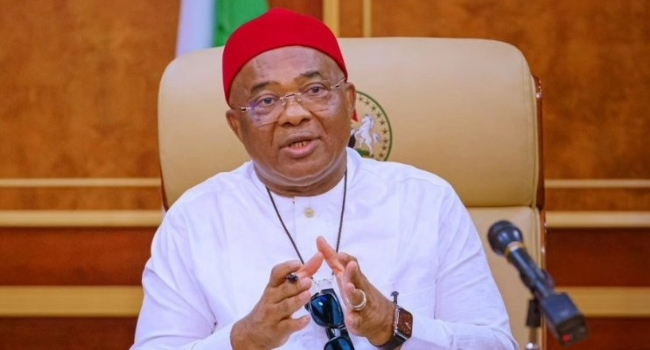Paragraph 1: A Significant Wage Increase for Imo State Civil Servants
Governor Hope Uzodimma of Imo State has announced a substantial increase in the minimum wage for civil servants, raising it from N76,000 to N104,000. This decision, revealed during a meeting with labor union leaders at the Government House in Owerri, represents a significant improvement in the financial well-being of Imo State’s public sector employees. The governor’s move comes amidst a backdrop of economic challenges, including the lingering effects of the COVID-19 pandemic, national economic reforms, and the removal of fuel subsidies, all of which have contributed to increased living costs. This wage increase aims to mitigate the impact of these economic pressures on civil servants and their families.
Paragraph 2: Targeted Wage Adjustments for Key Sectors
The governor’s initiative extends beyond a general increase in minimum wage to include targeted adjustments for specific sectors deemed critical to the state’s development. Doctors, recognizing their essential role in healthcare delivery, will see a substantial increase in their minimum wage from N215,000 to N503,000. This move is likely intended to attract and retain qualified medical professionals within the state, bolstering the quality of healthcare services available to citizens. Additionally, tertiary institution teachers will receive a revised minimum wage of N222,000, up from N119,000. This recognizes the important role of higher education in shaping the state’s future workforce and incentivizes educators to contribute to the intellectual growth of Imo’s youth.
Paragraph 3: Justification for the Wage Increase: Stimulating Economic Growth and Recognizing Workers’ Contributions
Governor Uzodimma justified the wage increase by emphasizing its positive impact on the state’s economy and the well-being of its citizens. Higher wages, he argued, lead to increased productivity, happier families, and overall economic growth. This approach reflects a belief in investing in human capital as a catalyst for development. The governor also stressed the importance of maintaining a cordial relationship with organized labor, acknowledging their role as partners in progress. By ensuring fair wages and respecting workers’ welfare, the government aims to foster a positive and collaborative work environment.
Paragraph 4: Improvements in the State’s Financial Standing: Increased Revenue and Reduced Debt
The wage increase comes on the heels of improved financial performance by the Imo State government. Governor Uzodimma highlighted significant growth in the state’s internally generated revenue (IGR), rising from N400 million to over N3 billion monthly. Furthermore, allocations from the federal government have increased from a range of N5 billion to N7 billion in 2020 to N14 billion currently. These positive developments, coupled with a reduction in the state’s debt profile from over N280 billion to less than N100 billion, have created the fiscal space to implement the wage increase without jeopardizing the state’s financial stability.
Paragraph 5: Addressing Infrastructure Challenges and Fuel Subsidy Removal
Governor Uzodimma acknowledged the challenges his administration faced upon assuming office in 2020, particularly the dilapidated state of infrastructure across various sectors. Significant investments have been made in rebuilding infrastructure, particularly roads, and addressing security concerns. The governor also addressed the removal of fuel subsidies, a national policy that has led to increased living costs, and emphasized the importance of ensuring that the benefits of this policy reach ordinary citizens. He expressed optimism about the positive impact of the subsidy removal in the long run and the state’s commitment to ensuring equitable distribution of its benefits.
Paragraph 6: Further Government Initiatives: Pension Payments, Healthcare Reforms, and Entrepreneurship Development
Beyond the wage increase, the governor outlined several other initiatives demonstrating his administration’s commitment to improving the lives of Imo citizens. These include the upcoming payment of N16 billion in outstanding gratuities to pensioners, demonstrating a commitment to fulfilling obligations to retired public servants. Significant reforms in the health sector, including the implementation of a health insurance scheme and the equipping of health facilities, aim to enhance the quality and accessibility of healthcare services. Furthermore, the state government’s participation in the federal government’s program to establish 1,000 businesses in each INEC ward reflects a focus on entrepreneurship development and job creation. Finally, the governor called for unity among labor unions and emphasized the importance of ethical practices and productivity in the workforce, fostering a sense of shared responsibility for the state’s progress.














